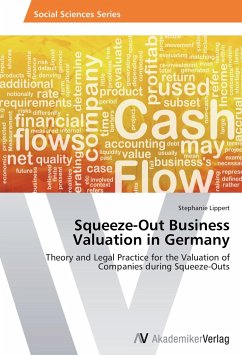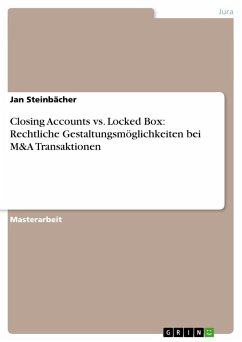In Germany, the legal term Squeeze-out is defined as the exclusion of minority shareholders from a corporation against an appropriate settlement. There are three main Squeeze-out legislations: Corporate Squeeze-out (Aktienrechtlich), Upstream Merger Squeeze-out (Verschmelzungsrechtlich), and Takeover Squeeze-out (Übernahmerechtlich). They demand the business valuation to reflect the full real value of the investment. This thesis aims to compare the legal practice to the theory of valuing companies during such a Squeeze-out. It focuses on business valuation theory and valuation approaches. Topics such as cash flows, forecasting phases, discount rates, stock prices, and the issues of forecast uncertainty will be explored. The thesis concludes evidence for that the theory of valuing companies during Squeeze-outs in Germany corresponds to the researched legal practice. Mistakes are improved with higher court instances because courts are interested in fostering optimal valuation methodologies. There is no ideal valuation because the underlying forecasts are always subject to uncertainty. What courts can focus on in order to improve the valuation quality over time is cultivating objectivity and innovation of valuation methodologies.
Bitte wählen Sie Ihr Anliegen aus.
Rechnungen
Retourenschein anfordern
Bestellstatus
Storno








